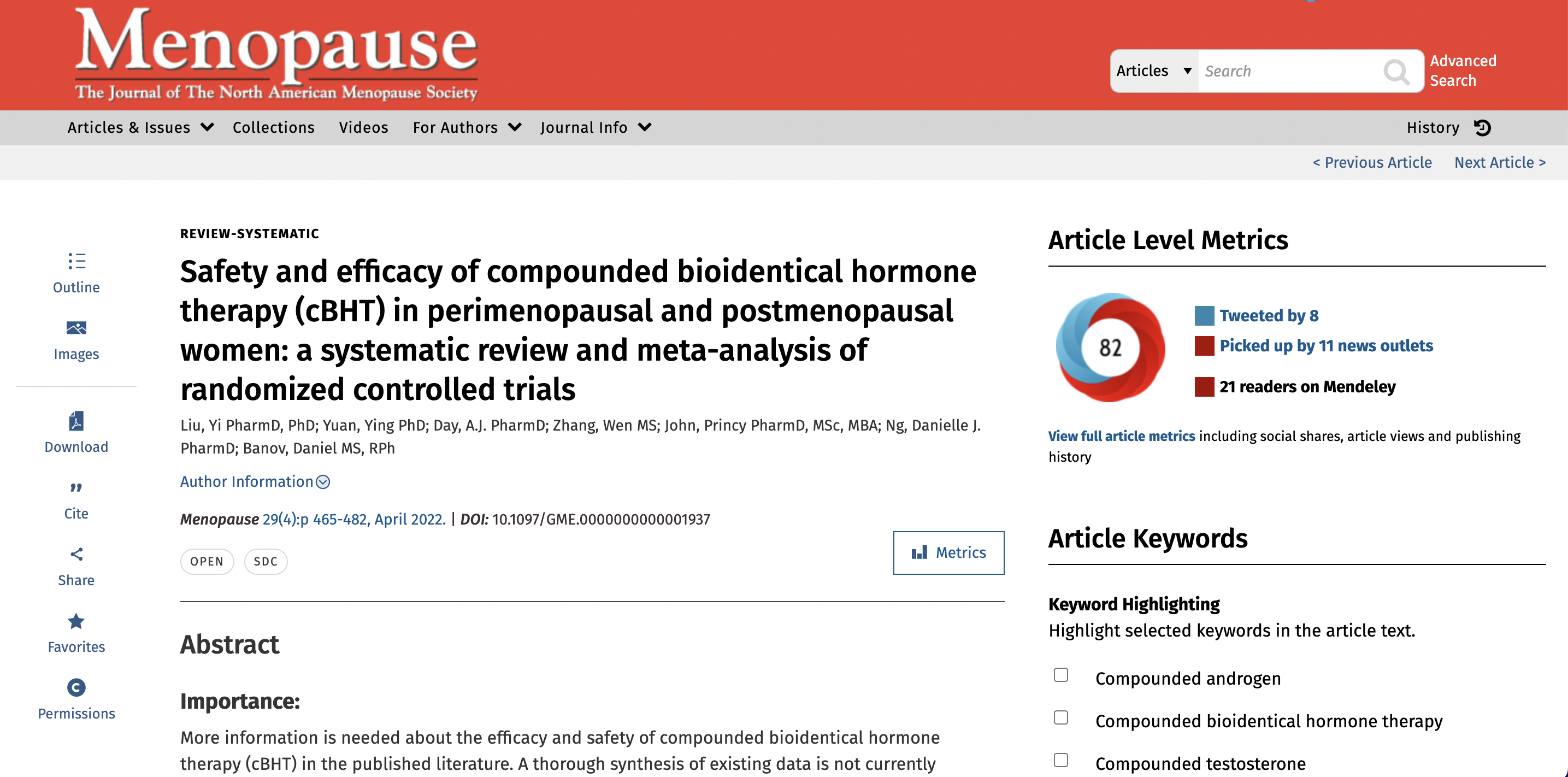
After reviewing the carefully selected 13 studies on compounded hormones, the NASEM committee concluded that:
“...there is insufficient evidence to support the overall clinical utility” of cBHT because these preparations do not meet the safety and efficacy standards applied to FDA-approved drugs.
In support of this conclusion, the Committee referenced the “paucity of reliable pharmacokinetic and bioavailability data for cBHT preparations as compared to FDA-approved drug products;” the “dearth of high-quality evidence—data from studies that would meet FDA’s requirements for granting regulatory approval to a drug product;” and a lack of “well-designed and properly controlled clinical trials.”
This is a red herring.
The Committee clearly believes that compounded hormones (all compounded medications?) should adhere to the same requirements that manufactured drugs do. But it is not reasonable or practical to apply the “standards for FDA-approved drugs” to compounded hormone formulations for a number of reasons.
Most importantly, compounded formulations are specifically designed for one patient making it unreasonable to expect to see the same kind of data on compounded therapies “from studies that would meet the FDA’s requirements for granting regulatory approval to a drug product.”
In fact, the U.S. Supreme Court recognized this very principle in Thompson v. Western States Medical Center, wherein the majority stated that:
Preserving the effectiveness and integrity of the FDCA’s new drug approval process is clearly an important governmental interest, and the Government has every reason to want as many drugs as possible to be subject to that approval process.
The Government also has an important interest, however, in permitting the continuation of the practice of compounding so that patients with particular needs may obtain medications suited to those needs. And it would not make sense to require compounded drugs created to meet the unique needs of individual patients to undergo the testing required for the new drug approval process.
By requiring that the evidence in support of compounded hormones should be evaluated against the same standards as FDA-approved medication, the NASDEM committee seeks to erase the line between compounding and drug manufacturing.
Source Material
The foundation of this website is an independent analysis of the original NASEM report, The Panel Put Policy-Making Before Patient Need, written and published by The Berkeley Research Group. You can download the analysis here.





